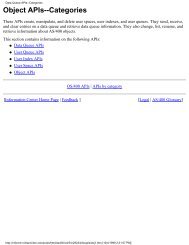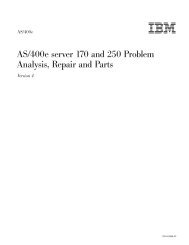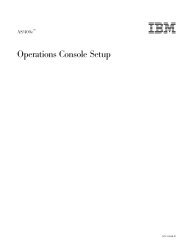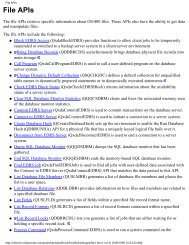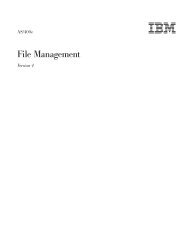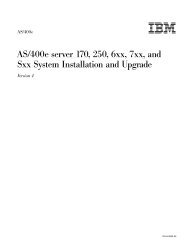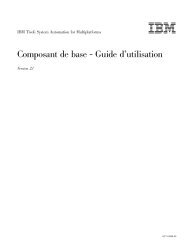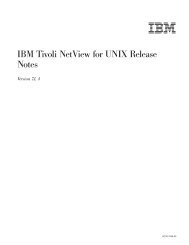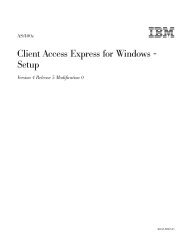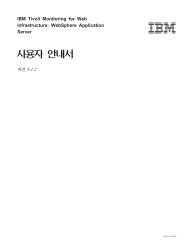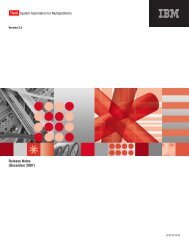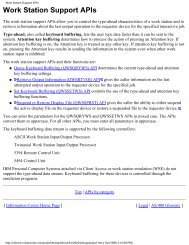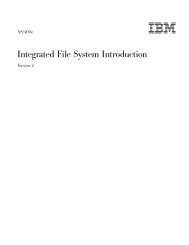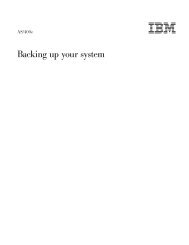Qshell Interpreter (qsh) - FTP Directory Listing - IBM
Qshell Interpreter (qsh) - FTP Directory Listing - IBM
Qshell Interpreter (qsh) - FTP Directory Listing - IBM
Create successful ePaper yourself
Turn your PDF publications into a flip-book with our unique Google optimized e-Paper software.
Operators<br />
-nogroup<br />
True if the file belongs to an unknown group.<br />
-path pattern<br />
True if the pathname being examined matches pattern. Special shell pattern<br />
matching characters ([, ], *, and ?) may be used as part of pattern. These<br />
characters may be matched explicitly by escaping them with a backslash<br />
(\). Slashes (/) are treated as normal characters and do not have to be<br />
matched explicitly.<br />
-perm [-]mode<br />
The mode may be either symbolic (see chmod) or an octal number. If the<br />
mode is symbolic, a starting value of zero is assumed and the mode sets or<br />
clears permissions without regard to the process file mode creation mask. If<br />
the mode is octal, only bits 00777 (S_IRWXU | S_IRWXG | S_IRWXO) of<br />
the file’s mode bits participate in the comparison. If the mode is preceded<br />
by a dash (-), this primary evaluates to true if at least all of the bits in the<br />
mode are set in the file’s mode bits. If the mode is not preceded by a dash,<br />
this primary evaluates to true if the bits in the mode exactly match the file’s<br />
mode bits. Note, the first character of a symbolic mode may not be a dash<br />
(-).<br />
-print This primary always evaluates to true. It prints the pathname of the current<br />
file to standard output. The expression is appended to the user specified<br />
expression if neither -exec, -ls nor -ok is specified.<br />
-prune<br />
This primary always evaluates to true. It causes find to not descend into<br />
the current file. Note, the -prune primary has no effect if the -d option was<br />
specified.<br />
-size n[c]<br />
True if the file’s size, rounded up, in 512-byte blocks is n. If n is followed by<br />
a ′c’, then the primary is true if the file’s size is n bytes.<br />
-type t<br />
True if the file is of the specified type. Possible file types are as follows:<br />
v b for block special<br />
v c for character special<br />
v d for directory<br />
v f for regular file<br />
v l for symbolic link<br />
v p for FIFO<br />
v s for socket<br />
-user uname<br />
True if the file belongs to the user uname. If uname is numeric and there is<br />
no such user name, then uname is treated as a user id.<br />
All primaries which take a numeric argument allow the number to be preceded by a<br />
plus sign (+) or a minus sign (-). A preceding plus sign means ”more than n“, a<br />
preceding minus sign means ”less than n“ and neither means ”exactly n“.<br />
The primaries may be combined using the following operators. The operators are<br />
listed in order of decreasing precedence.<br />
Chapter 4. Utilities 55



